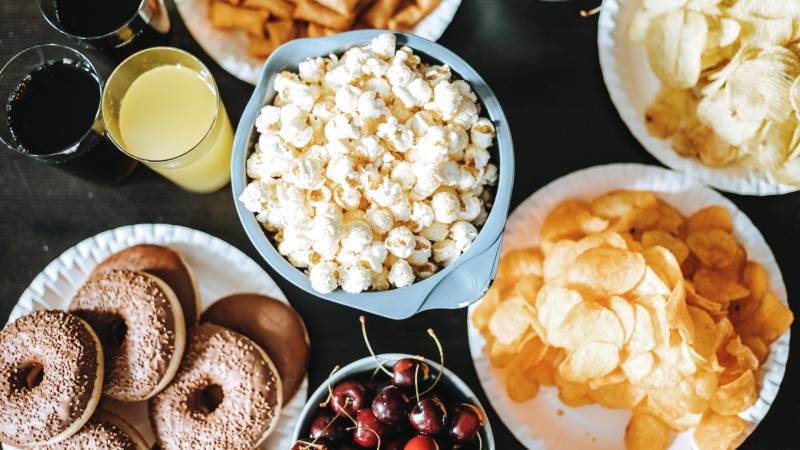The rise of American snack culture
Snacking is ubiquitous in modern American life: 95 percent of adults consume at least one snack per day, and more than half have at least three a day. Atlantic staff writer Ellen Cushing says the practice is relatively new. Until recently, “there were no elaborate treats after soccer practice, or snack trays on strollers, or tubes of yogurt. Energy bars were for athletes, not accountants. National parks did not have vending machines.”
American snacking culture developed in the 1970’s and 1980’s when several cultural factors converged, including the deregulation of children’s advertising, new nutritional research promoting smaller meals, and an increasing number of working women. As Cushing explains, “The food industry loves snacks because snacks are extra. Snacks are something that we eat on top of other meals.”
The evolution of packaged snack foods
Snacking owes its rise to development of packaged snack foods and innovative packaging technologies. Cracker Jacks, introduced in the late 19th century, are considered one of the first mass-produced snacks, with their iconic tagline “The more you eat, the more you want.” Potato chips also played a pivotal role, as the invention of nitrogen gas packaging allowed them to stay crisp and fresh in portable bags.
Food companies have invested heavily in making snacks more “hyperpalatable,” engineering the perfect combination of sweet, salty, and crunchy flavors that tap into human cravings.
Cultural differences in snacking habits
American-style snacking is less common in other countries. Maya Feller, a registered dietitian nutritionist, says in countries like France, eating on-the-go or snacking between meals is less common, as meals are seen as social occasions with set times. But snacking habits are also evolving globally due to urbanization and the spread of Western food products.
Health implications of excessive snacking
The prevalence of snacking, particularly with highly processed and unhealthy options, has raised concerns about potential health implications. Feller cautions that consuming excessive amounts of added sugars, synthetic fats, and salts from many popular snacks can contribute to metabolic dysfunction and chronic diseases. Additionally, the constant grazing associated with modern snacking patterns may disrupt the body’s natural digestion cycles and lead to overeating.
Reframing healthy snacking habits
While acknowledging the challenges posed by the ubiquity of unhealthy snack options, Feller says we can promote healthier snacking habits. She emphasizes the importance of reading nutrition labels and choosing minimally processed, nutrient-dense snacks like fruits, vegetables, and nuts. She also recommends involving children in the snack selection process and modeling a positive relationship with food.
This content was edited by the Forum production team but was generated with the help of AI.
